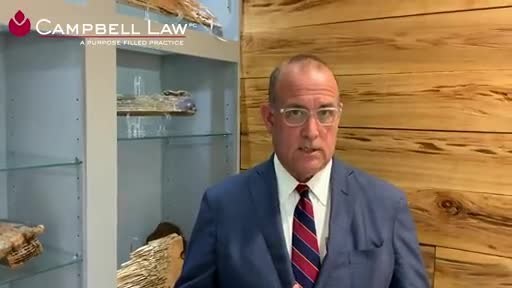Orkin Sanctioned $1 Million for Systematic Scheme to Defraud its Customers Says Campbell Law
BILOXI, Miss., Aug. 1, 2019 /PRNewswire/ -- The Fraud: On July 29, 2019, Judge Benedict found Orkin guilty of intentionally and fraudulently administering a scheme to defraud its Mississippi termite customers since June of 2010, by selling termite bonds that did not provide complete termite treatments. According to Benedict’s eighteen-page order, the scheme is also "…a crime in Mississippi." "There can be no credible argument that [Orkin] did not know that what they were doing was fraudulent," Benedict ruled. After a four-day trial, the arbitrator determined that "[t]here is no dispute that Respondent Orkin withheld the terms of the offered contract and the company's continuous failure to perform the proper treatment from [Wes and Melissa Manning]."
The cover-up: Orkin tried to conceal its scheme to withhold required termite chemicals in the form termite contracts it sold to Mississippi consumers by reporting to the Mississippi Department of Agriculture (MDAC) in monthly reports that it was performing a full or "conventional" treatments when it was not. Orkin's attempted concealment proved that Orkin knew it was perpetrating a massive and systematic fraud. The arbitrator held, "[a] continuous multi-issue concealment is NOT a mistake; it is a cover-up and an intentional fraud."
The excuses: Orkin argued at trial that it printed "PP" on its contract, which was an internal code that Orkin argued showed it would provide less than the full conventional treatment. However, Benedict found that coding a contract with "PP" means nothing to "teachers and equipment operators, such as the [Mannings], and just regular folks whose jobs involve something other than controlling pests." The arbitrator dismissed Orkin's argument, stating that, "[t]o suggest that the general public can and should make the distinction of Respondent's own interpretation of "PP" is absurd." Instead, Benedict noted that MDAC regulations require a boldface disclosure using a specific phrase that clearly alerts consumers to the fact their property will get less chemical than the best and most effective treatment available.
To defend not repairing the damage to the Mannings' home, Orkin claimed that the contract contained limitations that justified Orkin refusing to repair the damage caused by it faking the termite prevention treatment. However, the arbitrator ruled that the contract was void because of Orkin's fraud and its failure to perform its side of the bargain. In other words, a party that intentionally cheats another and does not perform its contractual promises cannot rely on contract language to avoid paying for all the damages its wrongdoing causes. According to Campbell, "Orkin customers need to know that Orkin cannot commit fraud and then use its contract terms to deny claims. What the customer gets is governed by Mississippi laws, not some contract that Orkin tricked someone to sign with its illegal and fraudulent acts."
Collateral damage: The Mannings and other Orkin customers in Mississippi are not the only victims here. According to the consumers' lawyer, "Orkin not only cheated all of its customers who paid for termite prevention treatments, Orkin also cheated honest competitors who actually provided full treatment when they sold full treatments. It's like a gas station that programs the pump to report pumping a gallon of gas when it only pumps a half-gallon. This cheats both customers and competitors. The difference is that you know you're getting cheated by the gas station because your fuel gauge tells you that your tank isn't full. On the other hand, you don't know and can't tell when your termite company provides less chemical than it is required by law to provide."
Justice: The young family whose home was badly damaged by termites were awarded $2,610,418.05 for compensatory and punitive damages and for reimbursement of their attorney's fees and expenses. Of the total, Orkin was ordered to pay $1,000,000 in punitive damages to punish Orkin for its fraudulent practices. Mississippi law caps punitive damages at one million dollars.
SOURCE Campbell Law PC
Related Links
WANT YOUR COMPANY'S NEWS FEATURED ON PRNEWSWIRE.COM?
Newsrooms &
Influencers
Digital Media
Outlets
Journalists
Opted In


Share this article